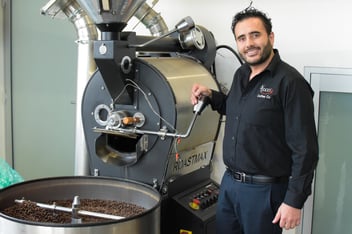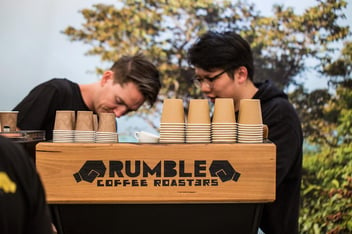Monastery Coffee: "Working capital we didn't have before that we do now"
“If you’re not on Facebook, you don't know what's going on, right? You have to be on Facebook. You have to be on Ordermentum."
Adam Marley, Co-Founder, Monastery Coffee
Monastery Coffee is a specialty, Adelaide based coffee roaster with a focus on quality coffee from reputable growers. Their philosophy rests on making sure that everyone in their supply chain has sustainable profit margin, allowing the farmers they buy from to be able to reinvest in their land and their business in a way that allows the coffee industry to flourish.
Both a supplier and a venue, Monastery Coffee has a unique view on Ordermentum. We speak to co-founder Adam Marley, about how we’ve supported their business growth.
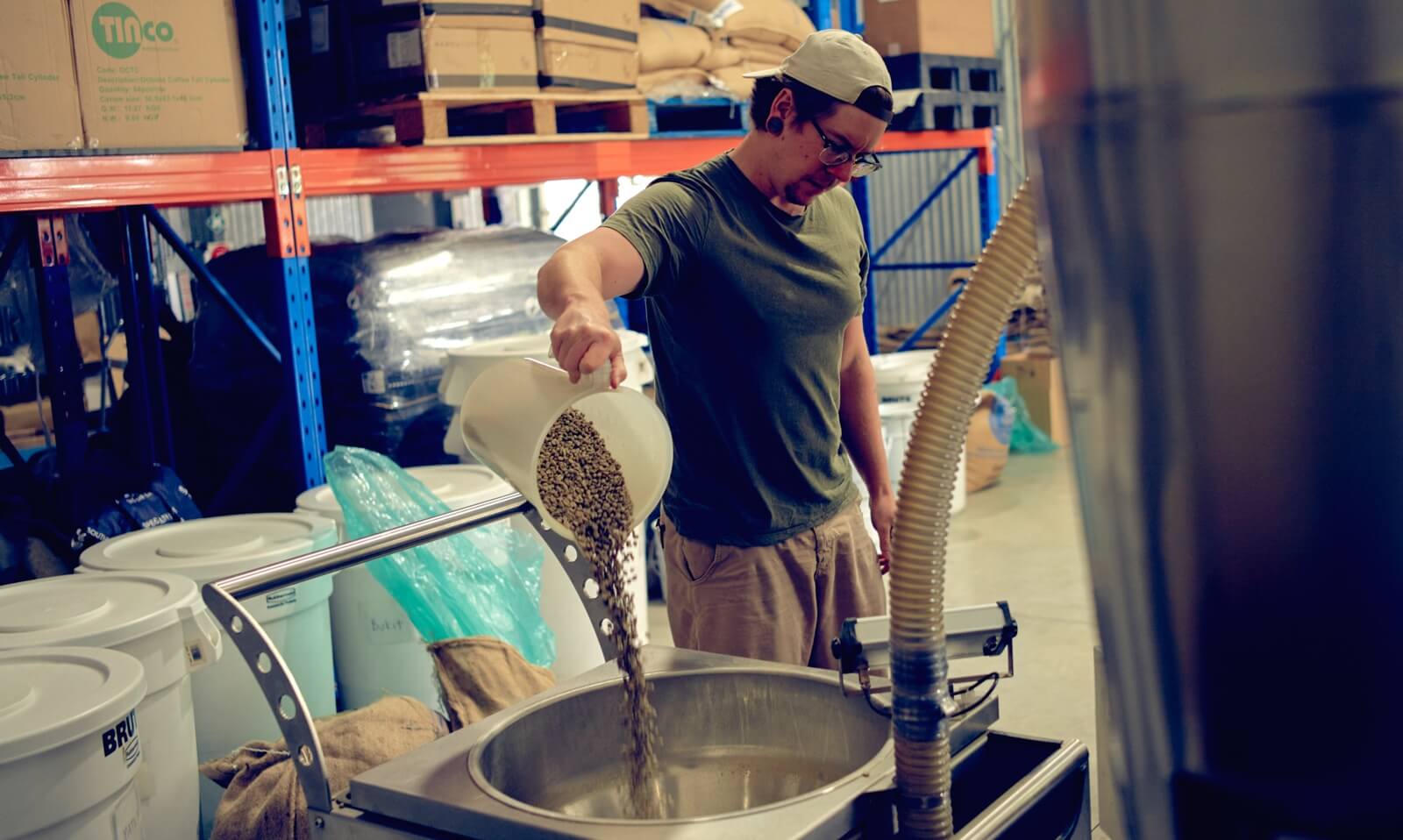
What are the main challenges you've had with scaling and growing your business?
We don’t make any compromises on the quality of the green coffee we're buying, but higher quality does mean a higher price. But even with that higher price, we don’t have a huge margin.
Sometimes cafe owners might compare our prices to one of the much larger roasters, who can offer things like free equipment. For some cafe owners we’re out of their budget - but we’re a small business, and we can’t afford to give away 30 grand of equipment.
Who are your customers?
It’s the ones that aren’t willing to sacrifice quality. To them, quality costs what it costs, especially when it comes to coffee. They’ll save money in other areas. These are people who are also going to get the best local milk that they can find, the best fruit and veg they can find.
As a result, they’re going to be more expensive for the end consumer, but it’s worth it. They realize that they're going to have a smaller potential customer base because of their pricing - but they're okay with that because that's their vision.
It means that none of our customers are ever trying to push us on price. They don't really treat us as a supplier, they treat us as friends, and that's how we treat them as well.
They care and they know that we care. It’s a smaller market - but it’s a much nicer market.
What were the problems you faced before you started using Ordermentum?
We were having the problems that so many small supplier businesses face: we couldn’t manage standing orders, or orders in general, we couldn’t reduce our accounts receivable to zero.
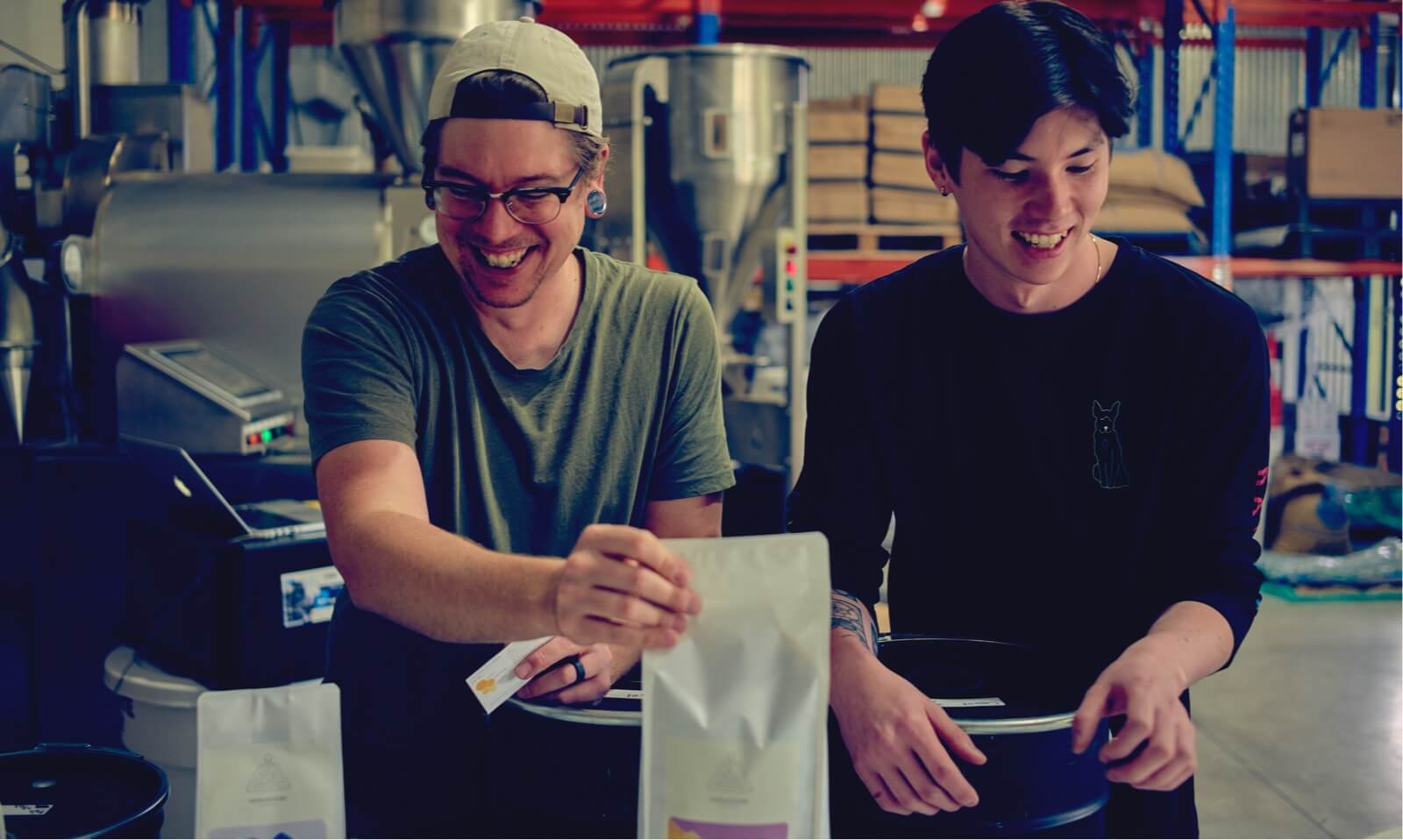
How would you manage orders before Ordermentum?
The old system was having everything written down as notes on my phone. Then at the end of the week, I would hope that I made notes of every order we had. Then, I’d go into Xero, and manually create invoices for all of them.
Then the customer had to get their Xero invoice and then had to manually EFT the invoice.
Now they just can do it themselves or shoot me a text. “Hey. Twelve kilos. Three oat milks.”
What was it like collecting payments before you started using Ordermentum?
Chasing payments was hours of my week. And not just the time, but also the stress - it was a really stressful part of my week.
At one point, we had 50,000 out in accounts receivable. And a lot of that was just people forgetting. Then I’d remind them and at that point, they wouldn’t have money in their account because they just paid their last bill or just paid super or whatever.
This kind of situation has a snowball effect, and it means that every week I was having to have these awkward conversations: “sorry to be that guy, but can we please be paid?” And then they feel guilty and I feel guilty for making them feel guilty.
How has Ordermentum helped with managing orders?
We don’t forget the orders. We don't forget what we shipped them, and what we delivered to them.
Then at the end, we offer 14 day terms in two weeks. The money automatically comes out of their credit card. We automatically get paid. They don't have to think about it. It's so much easier. Even if they're not communicating through Ordermentum with us, all the orders are still made in Ordermentum.
The coffee appears, money leaves their account and it's done.
What’s it like collecting payments now?
One of the main reasons we wanted to move on to Ordermentum, was that you could enter credit card or direct debit details so that people wouldn’t have a choice about paying.
I think the platform separates the getting of their coffee from paying for it. Now, the paying for the coffee never really comes up - we never have to talk about it.
Instead, we talk about the blend changing, and the roast level, and how the cafe is going, and how their kids are going - there's more fun things to talk about than invoicing.
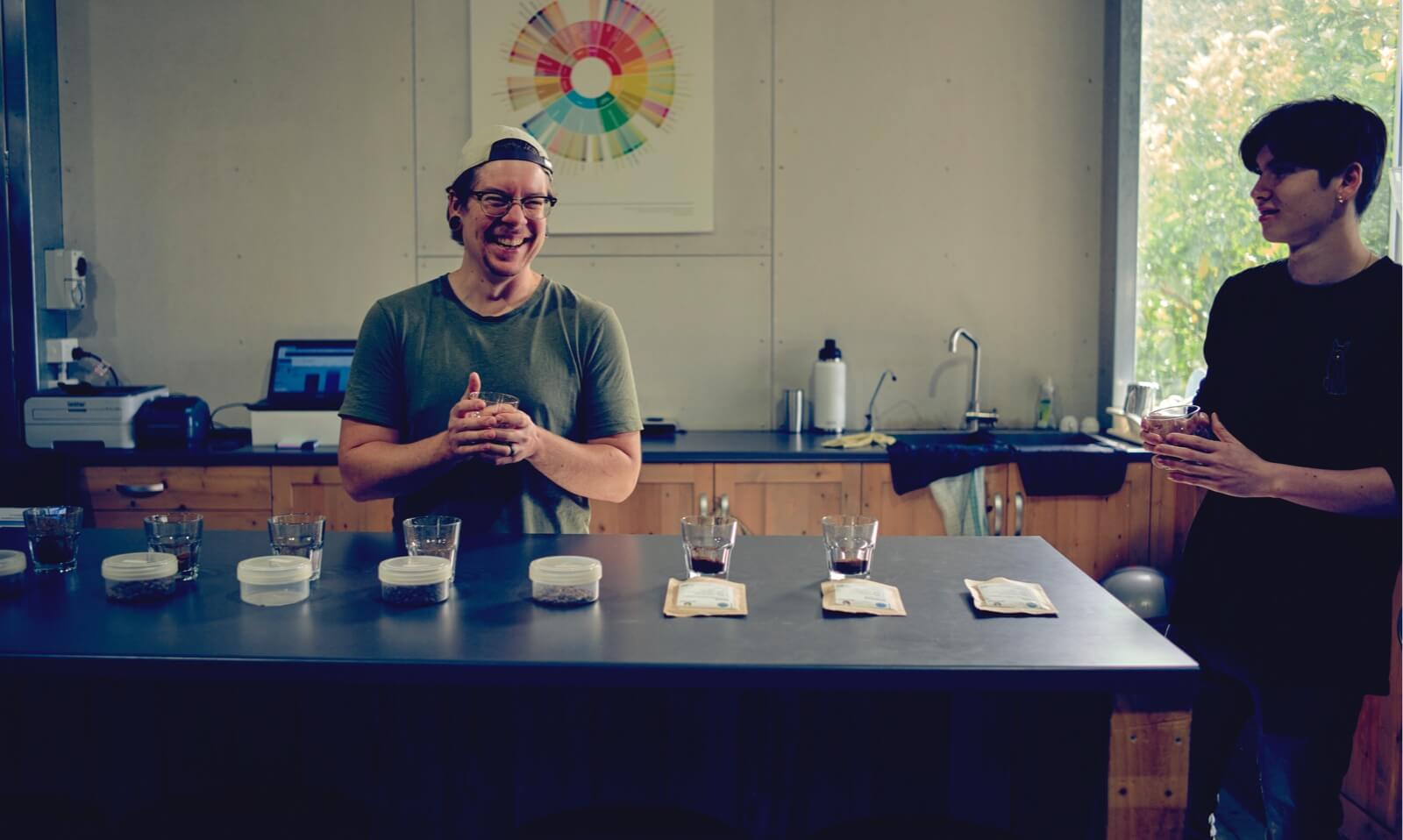
How did you find the set up and integration?
The putting orders through, managing orders, and keeping track of orders - that was immediate as soon as I set everything up.
We didn't initially go down the path of credit card/direct debit at first. We just got people used to this new system for putting orders in, and were still allowing them to pay how they wanted.
Then we decided to change the way people paid. Initially, I was stressed out about mandating credit card or direct debit payment without exceptions. I was expecting some customers to get upset or angry with us.
But we didn't get any pushback. Our customers could see the benefit too, because it wasn’t that they didn’t want to pay us, they just genuinely forgot about it.
It was a little bit drawn out to get everyone on and get their details in, but that was just because I gave everyone time to do it. I know how time-poor cafe owners are and didn’t want to push!
How have your customers responded to being on Ordermentum?
Most have responded really well. Although, there are some customers who refuse to even use Facebook, let alone download a new app.
Some of my customers don’t even know they’re on Ordermentum. I’ll just put their details in for them and add their credit card.
They don’t need to do anything differently, but it still makes my life easier - and it makes their life easier as well, because we never forget orders.
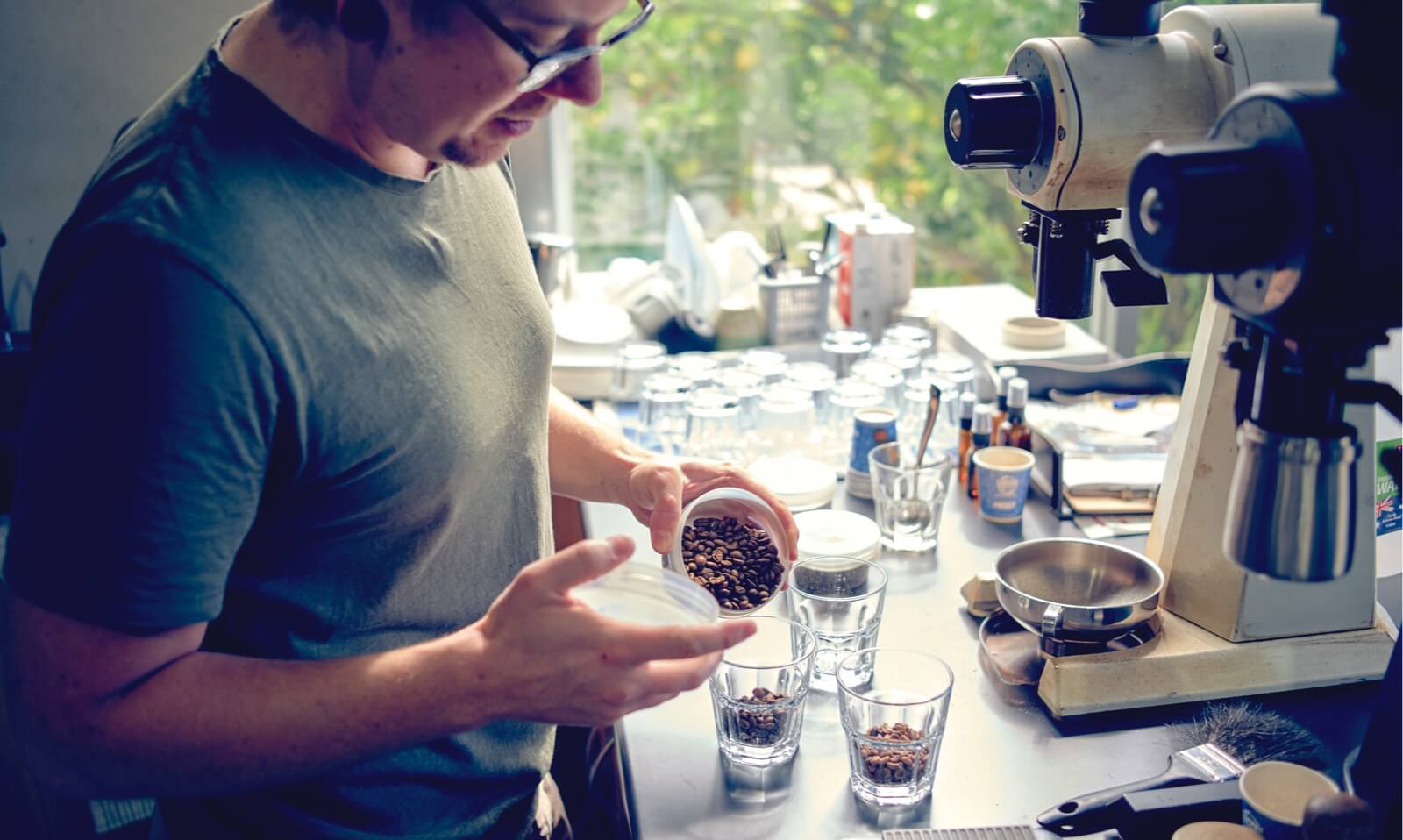
What’s your favourite Ordermentum feature?
The payments are fantastic…We have working capital that we didn't have before.
I'm not constantly being chased by our suppliers for payment either, which is great.
Standing orders are also amazing.
Previously, even though I had a list, we didn’t have a good system so I'd be on my delivery run and realise I’d forgotten someone’s order. Now, there’s no more of that. We can't possibly not know about someone's order because it's there.
Can you expand more on how standing orders work for you?
It’s industry standard to have a standing coffee order, so a lot of my customers have that, but if they need to, they’ll adjust the orders themselves on the platform.
The other half might send me a text saying, for example, “can we get only 20 kilos instead of 30 kilos this week?” Or “can we add some chocolate?” In that scenario, it’s no issue to make the change myself. I can just do it while I’m roasting; done. Super easy.
What do you think of the Insights feature?
I don’t think I use it to its full potential - but I really like it because we run a scorecard each week.
We keep track of things like wholesale sales, retail sales, and wages. I can just go into insights and in two clicks know the wholesale sales from a particular time period.
I’ll know how much of it was dark, how much of it was medium roast, how much of it was singles, how much alternative milk we sold. Seeing all those things really quickly and easily is fantastic. Previously because I tried to do that just using Xero and it was a nightmare.
Has the Insights feature made it easier to run your business?
Definitely. Being able to access that data already collated for me and manipulate it the way I want to see…it’s similar to what we can do in Shopify for retail sales. It’s so useful to have that feature on the wholesale side.
You’re able to see patterns before they emerge. For instance, we keep an eye on our labour as a percentage of revenue. And so if our labour is creeping up, then I’m able to analyse why we’re losing efficiency.
So we can pull out our total wholesale sales from Insights for the week and then the wages for that week, and put them all in a spreadsheet with some math.
I'll then also pull out individual SKUs to understand how much of each product we're selling. For example, is there any change in how many single origins are being bought versus dark blend?
Does the Insights feature help you figure out broader trends?
Yes, It gives us a good idea about broader trends for sure. It was really handy through COVID because we could see exactly what impact the restrictions were having on the cafes. On the flipside, we could also see when they were starting to build back up again as well.
I can also give our cafes a bit of reassurance when things are quiet: “don't stress out. It's not just you. Everyone was quiet last week. That's what Insights is telling me.”
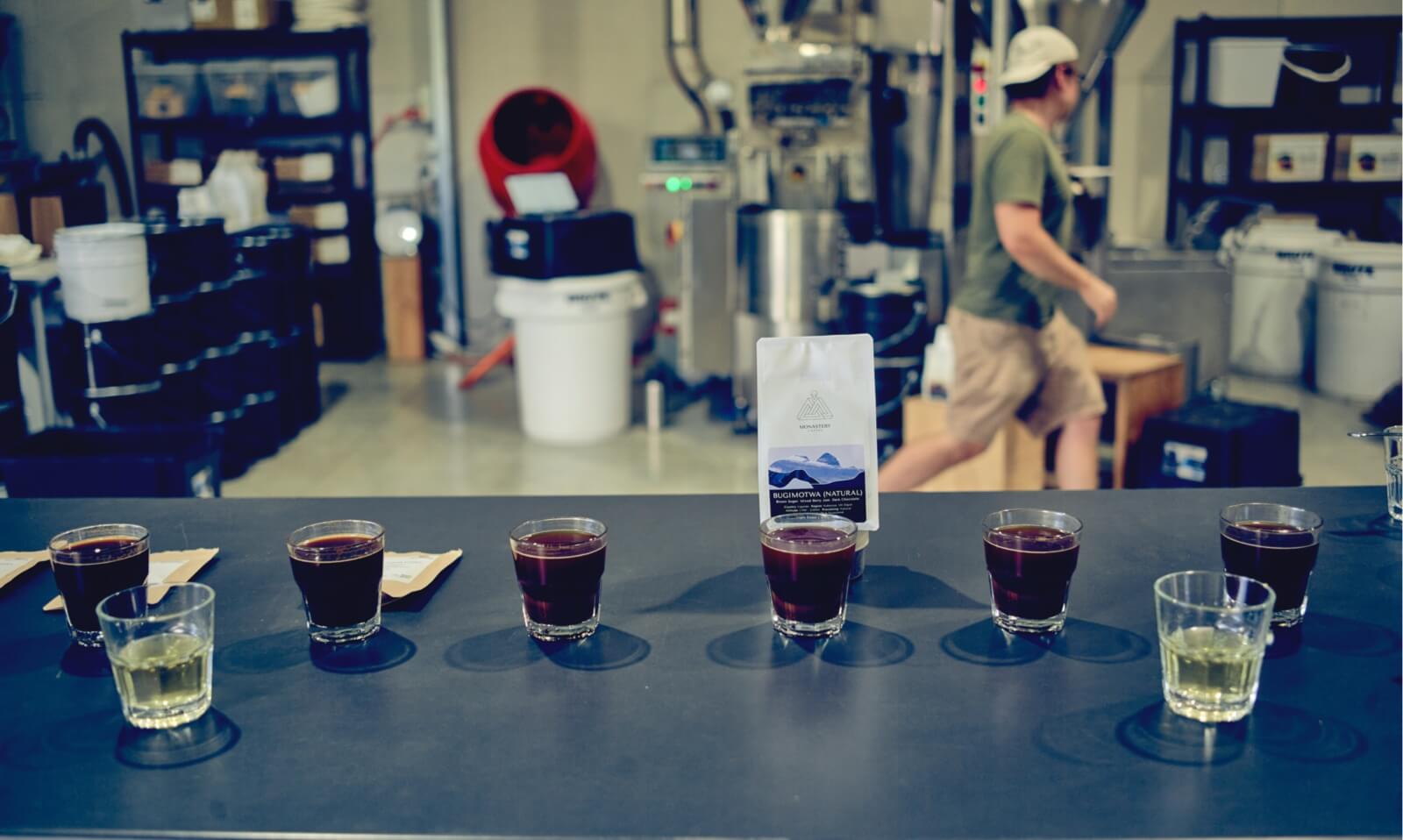
How much time do you think you’ve saved overall?
Between the invoicing, managing standing orders and chasing up unpaid invoices, I’d say I’d be saving two hours a week. Two hours a week, 50 weeks a year - that’s a pretty big saving.
And I also use Ordermentum on the other side - for our roastery/venue. Before, when I wanted to order tea or chocolate powder or alternative milks, then I’d have to go through each individual ordering system for every supplier, or I had to email them and call them and message them. Now, all the examples I just listed are on Ordermentum.
What would you say to another supplier who was thinking about using Ordermentum?
It’s sort of like Facebook. If you’re not on Facebook, you don't know what's going on, right? Everyone else is on Facebook. You have to be on Facebook. You have to be on Ordermentum.
Want to see how Ordermentum can transform your business? It's so easy - just request a demo now!
At a glance
- SUPPLIER Monastery Coffee
- LOCATIONAdelaide, South Australia
- INDUSTRYCoffee




